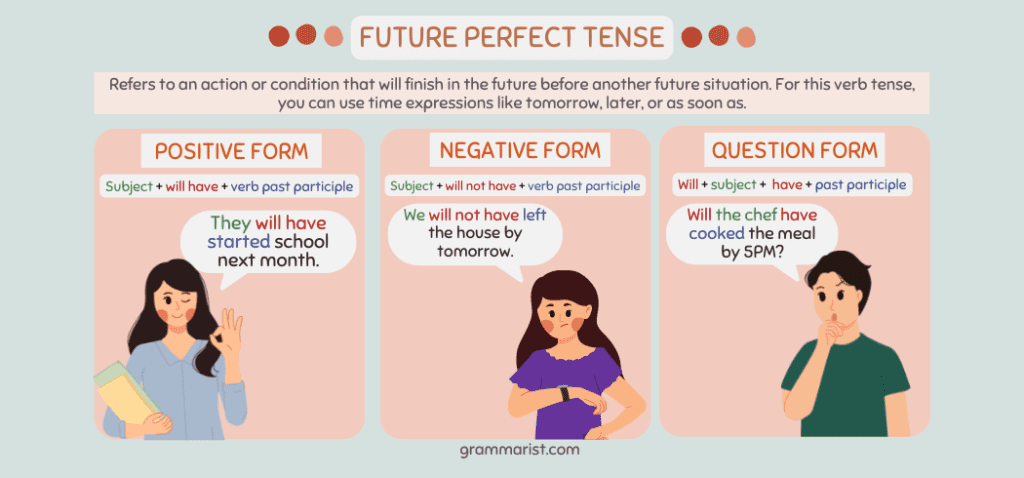All languages use tense to help describe whether an action is presently taking place, took place in the past, or will be taking place in the future.
In the English language, there are different verb tenses to help explain the time an event is happening. The future perfect tense references an action that will finish between the present and some point in the future.
These are easy to practice but can be a little confusing to non-native speakers, so we have compiled a quick review and printable grammar exercises for you to practice with.
Future Perfect Tense Explained

The key to understanding this verb tense lies in its name:
- Future refers to an action that will happen or occur sometime after the present time.
- In grammar, perfect refers to a completed action.
This means that the future perfect tense references an event that will be completed before another begins.
For example:
- I’ll have left before you arrive, so feel free to park in my spot.
Formulating Future Perfect Tense in Sentences
Creating a future perfect sentence is easy. It always follows the same formula whether your sentence is singular or plural: will have + past participle.
You can even easily change the sentence to the negative with the inclusion of “not” between “will” and “have.”
For example:
- Jonathan will have completed the survey by the end of the class period.
- Sarah started late, so she will not have finished before the end of class.
Using the future perfect tense in a sentence is equally as easy and simply inserts the subject between “will” and “have.”
For example:
- Will Markus have had enough time to finish if he leaves five minutes early?